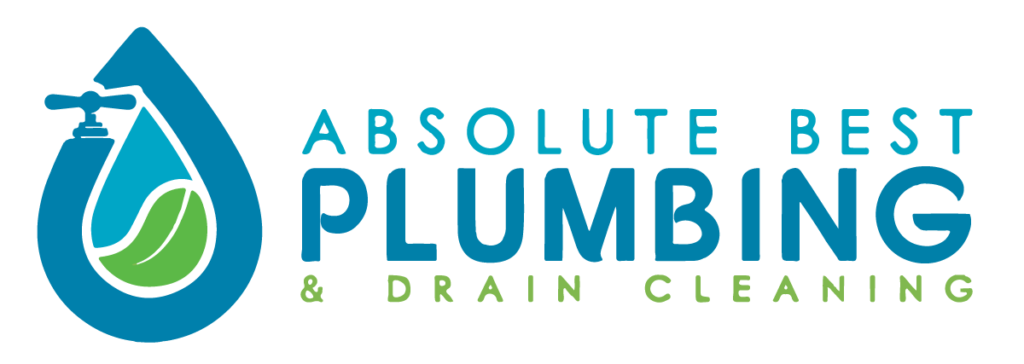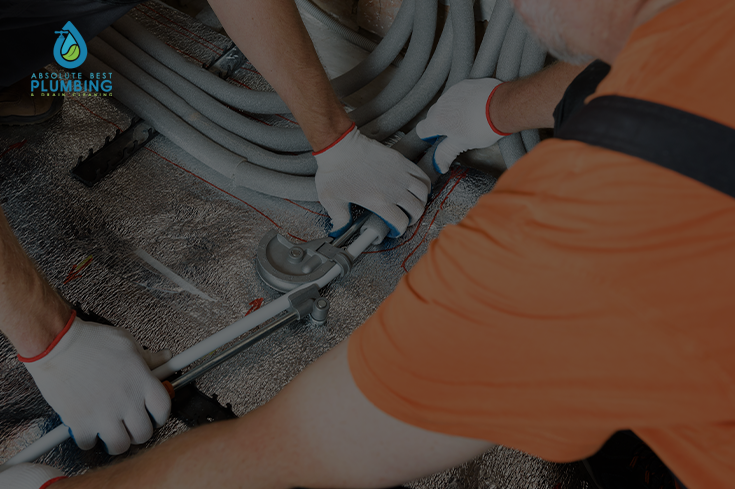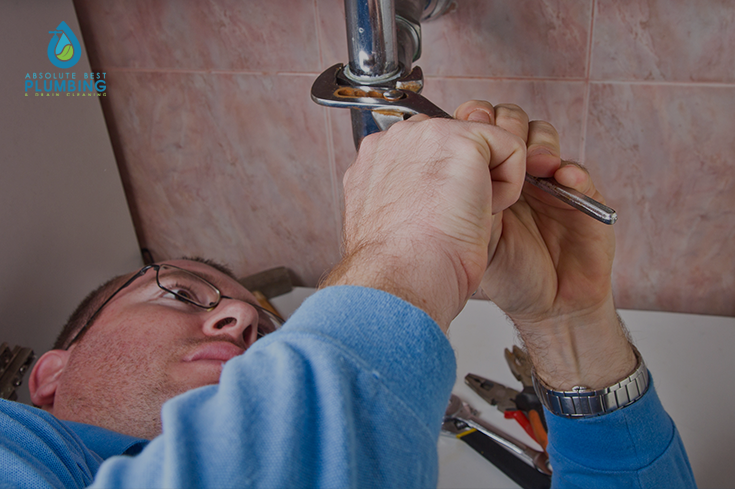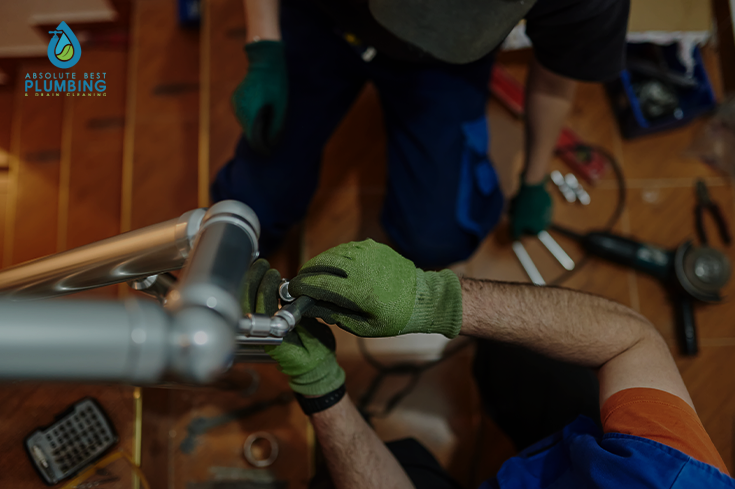Orlando Home Repiping
Absolute Best Plumbing is Orlando and Central Florida’s trusted provider for home repiping services, offering reliable, professional solutions to address the needs of aging and compromised plumbing systems. Home repiping is a significant but often essential investment, especially in older properties or those with problematic pipe materials like polybutylene. Repiping your home not only prevents future leaks and water damage but also enhances water quality, increases property value, and provides peace of mind.
Our team of licensed and experienced plumbers is well-versed in removing outdated pipes and replacing them with high-quality materials that meet modern standards for durability and safety. While repiping is sometimes necessary, we only recommend it when other repair options have been exhausted or are no longer cost-effective. This is typically the case in homes with multiple leaks or when the original pipes have become severely compromised due to age or material failure.
Why Consider Repiping for Your Orlando Home?
Plumbing systems are vital to the functionality and comfort of any home, yet all pipes degrade over time. Factors like age, material, and environmental conditions contribute to the wear and tear of plumbing, making repiping a necessary solution for some homes. Here are some reasons why homeowners might consider repiping:
- Aging Infrastructure: Older homes often have pipes made of materials that are no longer used, such as galvanized steel or polybutylene, which are prone to corrosion, rust, and brittleness.
- Corrosion and Rust: Rust-colored water, metallic-tasting water, or visible rust on exposed pipes can signal pipe corrosion, indicating that the plumbing system is deteriorating.
- Polybutylene Pipes: Widely installed from 1978 to 1995, polybutylene pipes have a high failure rate due to chemical degradation from chlorine and other oxidants in the water. These pipes are prone to sudden failure, leading to water damage and mold growth.
- Recurring Leaks: If leaks are frequent in multiple areas of the home, it may be more cost-effective to replace the entire system rather than continue with temporary repairs.
- Poor Water Pressure: Low water pressure often results from blockages, mineral buildup, or internal pipe corrosion, affecting the efficiency of your home’s plumbing.
For a detailed guide on household plumbing and maintenance, see the American Society of Plumbing Engineers (ASPE) resources.
Signs Your Home May Need Repiping
Recognizing the early signs of pipe failure can help you address issues before they become costly problems. Here are some key indicators that repiping may be necessary for your home:
- Discolored Water: Rust-colored or yellow water can indicate corrosion inside the pipes, which could lead to leaks or contamination.
- Foul Odors: Bad-smelling water, especially if it smells metallic or musty, could be a sign of deteriorating pipes.
- Frequent Pipe Leaks: Multiple leaks throughout the home often indicate that the plumbing system as a whole is reaching the end of its useful life.
- Water Temperature Fluctuations: Unstable water temperatures, especially in showers, can suggest issues with aging or failing pipes.
- Noisy Pipes: Loud banging or rattling sounds (also known as water hammer) can indicate air in the pipes, pressure issues, or loose connections.
For additional tips on recognizing plumbing issues, visit the Environmental Protection Agency (EPA) household plumbing guide.
The Benefits of Repiping Your Home
Repiping offers numerous benefits, ensuring that your home’s plumbing system operates efficiently and safely. Here are some advantages of home repiping:
- Improved Water Quality: New pipes eliminate rust, corrosion, and contaminants, resulting in clean, fresh water for drinking, cooking, and bathing.
- Enhanced Property Value: Homes with updated plumbing systems are more attractive to buyers, increasing property value and marketability.
- Reduced Risk of Water Damage: By replacing old pipes, you minimize the risk of leaks, burst pipes, and potential water damage, which can lead to expensive repairs.
- Increased Water Pressure: New pipes allow for optimal water flow, eliminating issues with low water pressure and improving the overall efficiency of the plumbing system.
- Lower Insurance Premiums: Some insurance providers offer lower premiums for homes with modern, updated plumbing systems, as the risk of water damage is significantly reduced.
For more insights on the impact of home plumbing upgrades, refer to the National Association of Home Builders (NAHB) resource on property improvements.
Choosing the Right Pipe Materials for Repiping
Selecting the appropriate pipe material is critical for the durability and longevity of your plumbing system. Absolute Best Plumbing offers a variety of high-quality pipe materials for home repiping, each with unique benefits:
PEX (Cross-Linked Polyethylene): PEX is a flexible, durable material that resists corrosion and freezing. Its flexibility makes installation easier, and it’s suitable for both hot and cold water applications. PEX is also less prone to cracking or bursting, making it a popular choice for residential repiping.
CPVC (Chlorinated Polyvinyl Chloride): CPVC is heat-resistant and less prone to scaling and corrosion, making it an ideal choice for hot and cold water lines. It’s affordable, durable, and suitable for Florida’s climate, where extreme cold isn’t a concern.
Copper: Known for its longevity and resistance to corrosion, copper piping is a reliable choice for homeowners looking for a long-term solution. Although more expensive than other materials, copper is naturally antimicrobial, which helps reduce bacteria buildup in the pipes.
Each of these materials offers specific advantages, and our team can help you choose the best option based on your budget, home layout, and water quality needs.
To learn more about plumbing materials, visit the American Water Works Association (AWWA) information on pipe materials.
The Repiping Process: What to Expect
Repiping an entire home is a complex process, but Absolute Best Plumbing is committed to making the experience as smooth and minimally disruptive as possible. Here’s an overview of the repiping process:
Initial Consultation and Inspection: We start with a comprehensive inspection to evaluate the current plumbing system’s condition and identify any potential issues. Our team will explain the findings, discuss repiping options, and provide a detailed estimate.
Material Selection and Planning: Based on the inspection results, we’ll recommend suitable materials for your home’s needs and develop a project plan that minimizes disruptions to your daily life.
Removing Old Pipes: Our technicians carefully remove the existing pipes, using non-invasive methods whenever possible to preserve the integrity of walls and floors.
Installing New Pipes: Once the old pipes are removed, we install the new piping system, ensuring secure connections and optimal layout for efficient water flow.
Testing and Final Inspection: After installation, we conduct thorough testing to confirm water pressure, flow, and leak prevention. Any necessary adjustments are made at this stage.
Cleanup and Restoration: We restore your property to its original condition, leaving your home clean and ready for use.
For information on repiping standards and best practices, refer to the International Association of Plumbing and Mechanical Officials (IAPMO) standards page.
Understanding the Risks of Polybutylene Pipes
Polybutylene was a popular piping material from the late 1970s through the mid-1990s due to its low cost and ease of installation. However, this material has proven to be highly unreliable. Polybutylene pipes are known to degrade when exposed to chlorine and other oxidants in the water, leading to sudden pipe failure. Additionally, many insurance companies consider polybutylene pipes a risk factor, leading to increased premiums or, in some cases, denial of coverage.
Common issues with polybutylene pipes include:
- Brittleness and Cracking: Over time, polybutylene pipes become brittle and prone to cracking, resulting in sudden leaks.
- High Failure Rates: Due to the material’s susceptibility to chemical degradation, polybutylene pipes have significantly higher failure rates than other materials.
- Reduced Home Value: Homes with polybutylene pipes often experience reduced property value, as potential buyers may be hesitant to purchase a home with such an unreliable plumbing system.
For more on the risks associated with polybutylene piping, check the Federal Trade Commission (FTC) page on polybutylene piping issues.
Benefits of Working with Absolute Best Plumbing
Choosing a trusted and experienced contractor is essential for a successful home repiping project. Here’s why Absolute Best Plumbing is Central Florida’s preferred choice for repiping services:
- Licensed and Experienced Technicians: Our team is certified and trained in repiping best practices, ensuring professional, reliable service.
- Minimal Disruption: We strive to complete repiping projects with minimal impact on your home life, working efficiently to get the job done quickly.
- Upfront Pricing: We provide detailed estimates so you know exactly what to expect in terms of cost, with no hidden fees.
- Commitment to Quality: We use only high-quality materials and industry-leading techniques to ensure your new plumbing system is built to last.
For more information on plumbing industry standards, visit the American Society of Plumbing Engineers (ASPE) quality assurance page.
FAQs About Home Repiping
How long does home repiping take?
The time required depends on the size and complexity of the project. Most home repiping projects can be completed within one to two weeks.Will repiping increase my home’s value?
Yes, repiping with modern, durable materials can increase property value by improving water quality, reducing risk of water damage, and enhancing appeal to potential buyers.What is the best pipe material for home repiping?
The ideal material depends on your budget, preferences, and specific needs. PEX, CPVC, and copper are all excellent choices, each with unique benefits.How can I tell if my home has polybutylene pipes?
Polybutylene pipes are typically grey, blue, or black and were installed between 1978 and 1995. A professional inspection can help confirm the material used.What are the risks of not replacing old pipes?
Aging pipes are more likely to develop leaks, corrosion, and blockages, leading to water damage, mold, and potentially costly repairs.
Absolute Best Plumbing is here to provide reliable, professional repiping solutions for homeowners in Orlando and Central Florida. Contact us today to schedule an inspection or get an estimate for home repiping services, ensuring the safety, quality, and longevity of your plumbing system.
